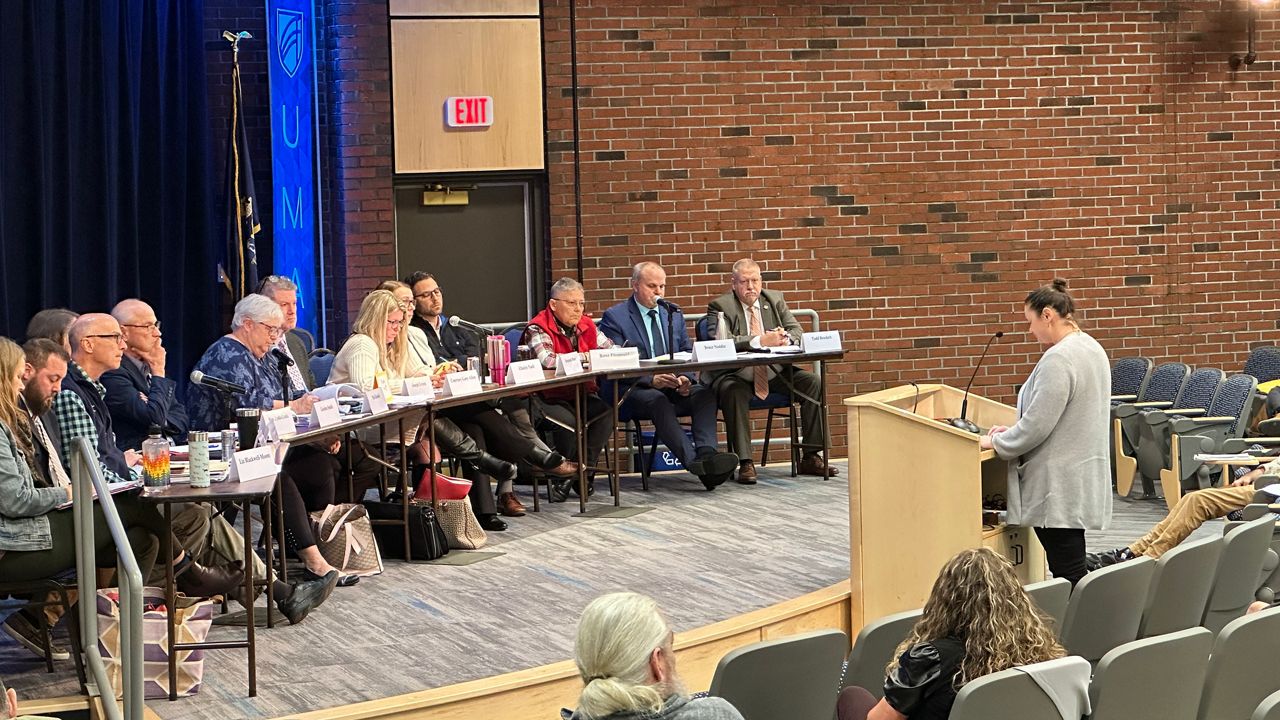Maria Grindle held a framed photo of her son Jonathan Thursday as she implored a state panel to do more to save lives lost to overdose.
“He struggled for 20 years with addiction,” she told members of the Maine Recovery Council.
She said he tried outpatient therapy, methadone clinics and in-patient services in New Hampshire, along with group therapy and living in a sober house.
But he died July 4, 2023. He was 41.
“I feel that if random drug testing had been in place, I would not be here telling you this story,” she said. “I hope you will consider my request for mandatory drug testing in all sober houses in hopes it will save the life of somebody’s loved one.”
Grindle’s personal story was just one example of the heartbreaking testimony the panel heard on Thursday as it begins to narrow in on how the state should allocate the estimated $230 million that will come in over 18 years to address the state’s opioid crisis.
Maine has set records for the last few years for the number of overdose deaths, reaching a high of 723 in 2022.
The numbers appear to be trending downward this year, with 462 Mainers dying of confirmed or suspected overdoses through September, according to Maine Drug Data Hub statistics.
Over the same period last year, 516 Mainers died of overdoses.
Advocates from across the state came to the public forum at the University of Maine at Augusta to pitch their ideas for how the money can have the most impact.
Lee Anne Dodge, program director for SoPo Unite, a drug free community coalition based at South Portland High School, emphasized the importance of early intervention.
“Ninety percent of addiction starts before the age of 18,” she said.
Dodge said her students sent along a list of funding requests, including money for youth prevention groups in all schools, funding for hobby clubs, paying club advisors and addressing transportation, housing and health care needs.
“There’s an 18 month wait now for adolescent treatment,” she said.
York County Manager Greg Zinser said they have been aggressive in providing treatment to those in jail, in addition to a 24-bed residential treatment option.
“Beds, beds, beds are most important as well as detox,” he said. “Right now, the access in York County in particular is extremely limited. We don’t believe it should be in the jail.”
Early next year, the county is set to break ground on a new 58-bed recovery center that will provide a variety of services, including detox and observation beds and slots for those who need help over the short, medium and long term.
Sarah Gaffney of the Acquired Brain Injury Advisory Council of Maine said last year, 10,000 overdoses were reversed.
“Every single one of those individuals is at risk for a brain injury,” Gaffney said.
For those who do suffer a brain injury, it can impact their ability to successfully receive treatment.
“As a result, overdose survivors may not get the treatment they need due to the unrecognized symptoms of their brain injury,” she said.
She recommended increased awareness and screening for brain injuries, training for medical providers and the buildings and beds to address these issues within the current system.
The council will next meet on Nov. 9 when it will discuss the comments received at the public forum.



